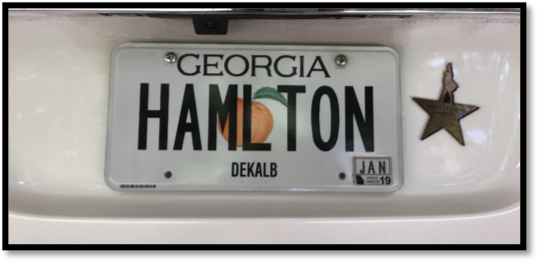Sunday, November 18, 2018
Hello from Atlanta, Georgia! I’m
Goldie MacDonald, and I am the Associate Director for Evaluation in the
Center for Surveillance, Epidemiology, and Laboratory Services at the
Centers for Disease Control and Prevention (CDC).
Rad Resource: I’m excited to share the
Checklist of Key Considerations for Development of Program Logic Models with this community. With support from
The Faster Forward Fund, I created this checklist to provide an open-access tool rooted in selected literature and practice-based knowledge. While there are many resources on logic models, I wanted to prepare a useful job aid for evaluators and non-evaluators alike. Unlike a lengthy manual, workshop, or textbook, job aids help professionals complete a task on-demand and in real-time. Job aids can accelerate or improve practice via experiential, hands-on learning. The checklist addresses crucial items necessary to develop a logic model: determining the scope, basic components and format, distilling and representing program theory, and preparing a narrative explanation of the graphic.
The checklist is complementary to other well-respected resources on logic models including the
Logic Model Development Guide by the W.K. Kellogg Foundation and
Enhancing Program Performance with Logic Models, an on-line course developed by the University of Wisconsin-Extension.
How is this checklist on logic models different from other resources on the same topic?
- Explains what practitioners and stakeholders should do when developing a logic model and includes advice for avoiding common missteps throughout the process.
- Aids users in developing a robust depiction of a program and veering away from too simple representations of programming.
- Assists users in developing their logic modeling skills over time, instead of one-directional transfer of knowledge at a single point in time.
- Includes content applicable in diverse settings and is not tailored to one field or type of program.
Lesson Learned:Since attending
Evaluation 2018, a conference focused on
Speaking Truth to Power, I’ve been thinking a lot about voice. I love
Hamilton: An American Musical. I changed my license plate to HAMLTON shortly after the show opened on Broadway in 2015. In the second act, moments after shooting Alexander Hamilton, Aaron Burr quietly realizes that the “world was wide enough for both Hamilton and me.” He understands that there is space for many and divergent voices. In that spirit, there are many high-quality resources on logic models available in various forms—explore the
CDC Library Guide on Logic Models for a well-curated collection of open-access resources. Likewise, this checklist incorporates a range of voices. I received detailed feedback on this tool from seven evaluation experts, three non-evaluator peers in my organization, representatives of two foundations, and seven additional practitioners who field tested the checklist. I add my voice to the chorus via this checklist and invite you to join the conversation too—the world is wide enough.
Visit the
Evaluation Checklists Project at Western Michigan University for more checklists!
 Do you have questions, concerns, kudos, or content to extend this aea365 contribution? Please add them in the comments section for this post on the aea365 webpage so that we may enrich our community of practice. Would you like to submit an aea365 Tip? Please send a note of interest to aea365@eval.org. aea365 is sponsored by the American Evaluation Association and provides a Tip-a-Day by and for evaluators.
Do you have questions, concerns, kudos, or content to extend this aea365 contribution? Please add them in the comments section for this post on the aea365 webpage so that we may enrich our community of practice. Would you like to submit an aea365 Tip? Please send a note of interest to aea365@eval.org. aea365 is sponsored by the American Evaluation Association and provides a Tip-a-Day by and for evaluators.
About AEA
The American Evaluation Association is an international professional association and the largest in its field. Evaluation involves assessing the strengths and weaknesses of programs, policies, personnel, products and organizations to improve their effectiveness. AEA’s mission is to improve evaluation practices and methods worldwide, to increase evaluation use, promote evaluation as a profession and support the contribution of evaluation to the generation of theory and knowledge about effective human action. For more information about AEA, visit www.eval.org.